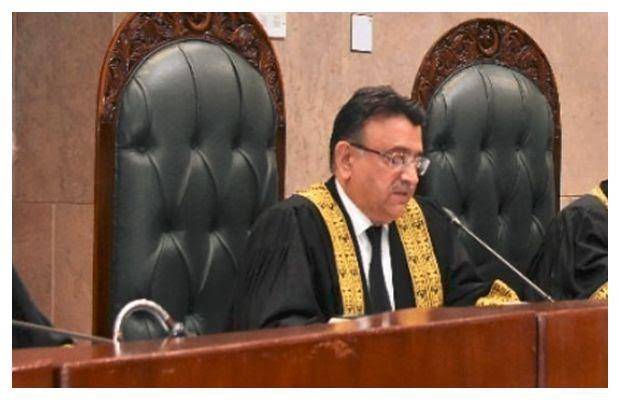CJP Bandial makes important statement over elections in 90 days
Shares

Chief Justice of Pakistan, Justice Umar Ata Bandial, addressed a Full Court session for the New Judicial Year on Monday, shedding light on the Supreme Court's significant caseload and its role in interpreting the Constitution and laws.
Over the past year, the Supreme Court of Pakistan grappled with a staggering 23,000 cases, encompassing a wide array of constitutional issues brought before it. Notably, the court faced multiple tests in February 2023, primarily related to Pakistan's Constitution, culminating in the recent decision concerning the audio leaks case.
During his address, CJP Bandial stressed the importance of political stability for the country's progress and the significance of timely general elections, emphasizing that unity among judges was paramount in this regard. He expressed confidence in his successor's ability to navigate these challenges. Despite the court's extensive caseload, CJP Bandial highlighted their judicious use of suo moto powers, having initiated only one such case in nine months.
Justice Bandial also acknowledged the tireless efforts of judges during the summer months, with workdays extending from 13 to 16 hours. He emphasized the positive impact of technology, particularly video-link facilities, in enhancing the scope of legal arguments, with thousands of people utilizing these services across various cities. Additionally, the introduction of Alternate Dispute Resolution (ADR) throughout the country was seen as a promising step to alleviate the burden on courts.
In conclusion, Chief Justice Bandial commended the media for their role as the society's eyes and ears and expressed gratitude to the Supreme Court judges for their support and independent thinking. He recognized the value of their differences of opinion, which contributed to the institution's growth.
Attorney General Mansoor Usman Awan also chimed in, emphasizing the need for the Supreme Court to dedicate more time to its appellate jurisdiction, in line with its primary duty, especially when dealing with high-profile or political cases, thus striking a balance between original and appellate functions
